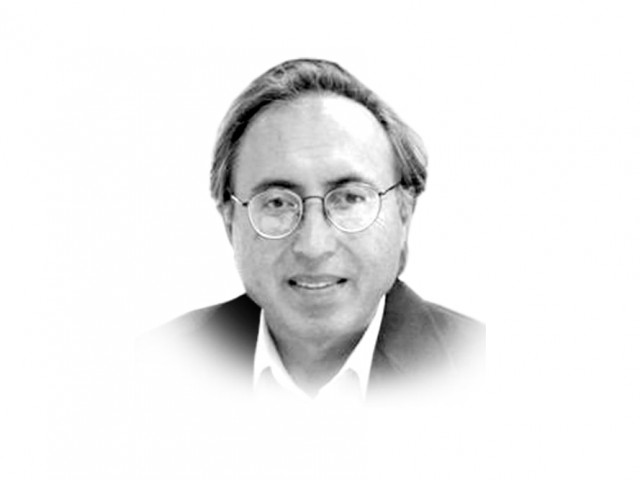The land where people don’t matter
We continue to give them power to lead us to chaos, disorder and maybe an impending collapse.

First of all, even if people get the right to vote, as they have exercised in one form or another since colonial times, it may not matter because the choice they have is between two familiar rivals coming from the same social and economic background. In much of the country, tribal chiefs, caste leaders, pirs and land-owning gentry consider it their birth right and — by social compulsion — a family and clan duty to participate in the electoral arena. So it remains an undeniable historical fact that the same groups of families and clans have dominated electoral politics of Pakistan, except in some of the major cities. The current state of political violence and the rise of power groups are equally discomforting.
Democracy enables one to make a choice between two different alternatives on an ideological plan, programme or manifesto, a definition of national purpose and a vision about the state and society. Sadly, on everything minor to major, all political parties speak the same language and use the same political idiom — with the exception of one popular leader in the opposition, Imran Khan. However, the big question is whether or not he will succeed in converting personal appeal and credibility into sizeable parliamentary numbers. If a leader with a 69 per cent popularity rating cannot win a majority, then there must be something wrong with the electoral system — since people vote for parliamentarians not for the chief executive. Or one must dig deep into the political sociology of an electable class that keeps the people within its sphere of political influence.
The constituency dynamics of electoral politics in the rural as well as urban constituencies are driven by caste, ethnicity, tribe and clan affiliations. It may take many runs of democratic elections before the caste-based electoral block breaks into political and civil community associations. Unless that happens, the people will remain parochial, seek security in narrow social webs and vote for candidates irrespective of what his or her performance has been and what his or her party did to the country and people at large. Oh, yes, a few times they have changed their horses, but they are of the same breed, run the same political distance and belong to the same ruling club.
The question that why Pakistan is in such dire straits today has many answers, but the most important one is that the common man possesses hardly any power to hold those in power accountable. He confirms political legitimacy on them, and they in return rob him. This is the common view of the political class no matter which corner of Pakistan you travel to, but the mystique of Pakistani politics is that the same groups dominate us, define us and gladly we continue to give them power to lead us to chaos, disorder and maybe an impending collapse.
Another mystique of politics is that thugs and robbers can be rulers in democratic garb, if people are ignorant, helpless and lack the courage to jettison parochial interests. Good luck people!
Published in The Express Tribune, July 25th, 2011.














COMMENTS
Comments are moderated and generally will be posted if they are on-topic and not abusive.
For more information, please see our Comments FAQ